Learn from senior corporate executives from different industries and leading academic experts
Presentations, on-stage conversations, panels and Q&As with corporate & academic speakers from all over the world. Tired of "corporate PowerPoints"? Our formats focus on sharing hands-on experiences and key learnings on different innovation challenges!
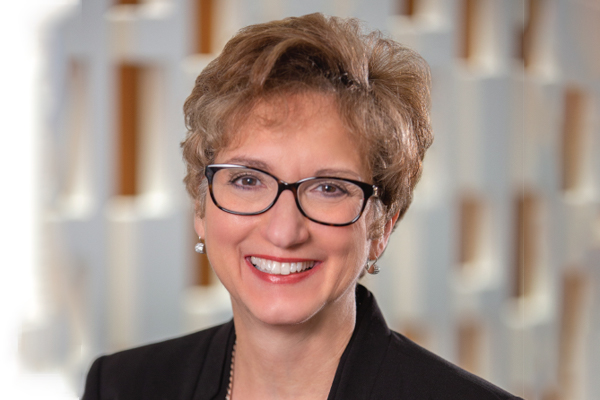
Chief Technology and Sustainability Officer
DuPont
Alexa Dembek is the Chief Technology & Sustainability Officer for DuPont. A 30-year DuPont veteran, she has championed the company’s entrepreneurial mindset to spur growth, while fostering close collaboration with customers. Today, Alexa leads business and innovation strategy alignment to make the most impactful portfolio choices for DuPont. She is passionate about elevating the role sustainability plays in these investment decisions and how DuPont can help customers achieve their own sustainability ambitions with our solutions.
Conversation with Alexa Dembek, DuPont’s Chief Technology and Sustainability Officer
In this session, David Weinberger, Senior Fellow at Harvard Berkman Klein Center for Internet and Society and Writer in Residence at Google People + AI Research, talks to Alexa Dembek, about how to put put inclusive culture at the heart of digital, sustainability and innovation.
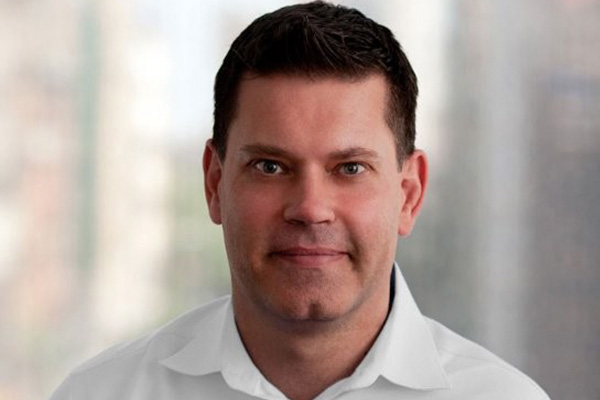
Chief Digital and Technology Officer. Pan-Europe
Yum! Brands
Judd is the Chief Digital and Technology Officer for Yum Brands. He has the responsibility to drive the digital, e-commerce and tech transformation agenda across Pan Europe. He lives and works from Lausanne, Switzerland. Before YUM, Judd ran growth strategy and innovation in multiple industries in the USA and South Africa, with a background in finance and venturing.
Yum! Restaurants International is accelerating its digital transformation, in line with increased digitalization in the QSR and Food Industry, driven by consumer habits and accelerated by COVID. In this presentation, Judd Knight will talk about how approaching innovation, and challenges being met with Automation and AI. He will share challenges and learnings on:
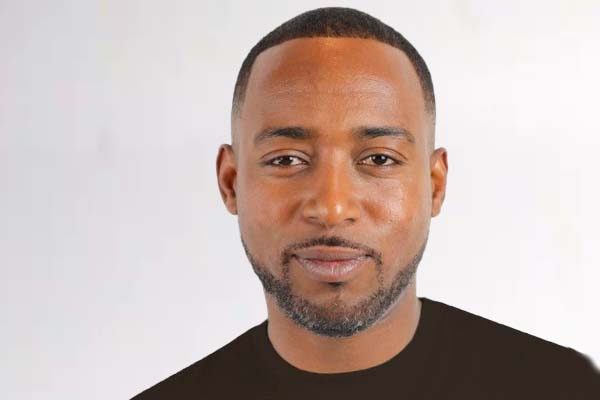
Vice President, Hardware Engineering
Peloton
Alfred is an experienced people leader, with a proven track record of building teams and delivering high quality engineered products to the world market for companies like Fibit, Amazon, and Motorola. Focusing on Agile HW development processes, team building, and innovative product development, he delivers solutions to complex design, engineering, and supply challenges to meet high volume manufacturing needs while maintaining cost and quality targets. Before joining Peloton, Alfred was the Head of Mechanical Engineering & Manufacturing at level 5, Lyft’s self-driving division and he is responsible for leading the detailed design, development and assembly of Lyft’s autonomous vehicles.
Alfred Jones, Vice President for Hardware Engineering at Peloton and former Head of Mechanical Engineering & Manufacturing | Level 5, Self-Driving Division at Lyft meets up with Jody Kelman, currently the Head of Lyft Autonomous to talk about innovation in a world of uncertainty and rapid change.
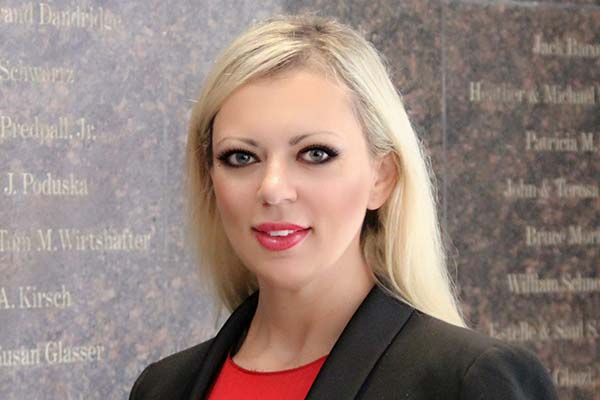
VP of Product and Innovation at Mastercard; Adjunct Professor at NYU
MasterCard / New York University
Vice President of Product and Innovation for Mastercard. Global AI Lead for Foundry. Futurist. NYU Professor. Ina has 15 years’ experience in international business focused on innovation, cybersecurity, emerging technologies, and outer space initiatives. Widely published author and industry AI keynote speaker. Ina also leads Mastercard’s space research on de-risking galactic payments.
In this discussion, Ina Wanca, VP of Product and Innovation at Mastercard and Adjunct Professor at NYU, Yaad Oren, Head of SAP Innovation Center Network, and Scott Fagan, Director, R&D External Innovation at PepsiCo will touch upon – among other things – the challenges in delivering scaled breakthrough innovation in large companies, and the various organizational tensions that make doing this challenging depending on how a company is set up what its core business is about and it’s priorities.
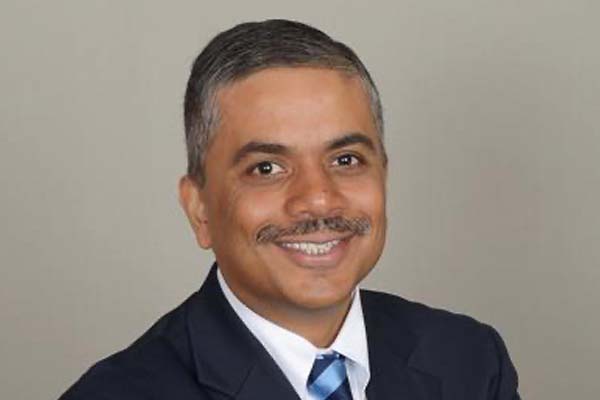
VP R&D Smart Products and Digital Ecosystem - Fabric & Home Care
P&G
Hari is the Vice President for Corporate R&D-Smart Products-Digital Ecosystem, for Procter & Gamble. Hari is also a Visiting Scholar at the Harvard School of Public Health, after completing Advanced Leadership Fellowship at Harvard University in 2019.
Hari was the Group Chief Strategy & Innovation Officer for Sime Darby, a $13 Billion USD conglomerate and diversified multinational, with businesses in key growth sectors namely, plantations, industrial equipment, motors, property, and energy & utilities with operations in more than 20 countries. Hari led the Group’s Strategy, Innovation, M&A, and Corporate Finance teams and created Sime Darby’s longterm value creation agenda. The strategy and transformation culminated in the creation of 3 standalone pure-play listed companies on the Kuala Lumpur stock exchange in late 2017.
Prior to joining Sime Darby, Hari served as the Global Managing Director for Kimberly Clark’sGlobal Innovation Center (GIC) based in Seoul, South Korea. In this role, Hari had all site-wide responsibilities for the GIC, including the leadership of several global programs. During his tenure, Hari established a multidisciplinary global innovation center that is helping in fueling KC’s innovation pipeline.
From 2006-2012, Hari was Partner and VP at Innosight, a firm founded by Clayton Christensen, the leading authority on disruptive innovation, collaborating with companies to devise growth strategies, building innovation capabilities, and creating products and services that improve people’s lives. Hari is a thought leader and expert in applying various innovation and new business models in emerging markets having advised several Fortune 500 companies.
Hari began his career with Procter & Gamble in 1992, where he spent 14 years in R&D, serving various leadership roles in US and China. Hari also served as a faculty member for strategy & innovation for Duke Corporate Education, Carlson School of Management and Tuck School of Business Executive Education programs.
In this fireside chat, Hari Nair, Vice President for R&D Smart Products Digital Ecosystem at Procter & Gamble, together with Gina O’Connor, Professor of Innovation Management at Babson College, talks about how large mature corporations can organize and manage for breakthrough innovation.
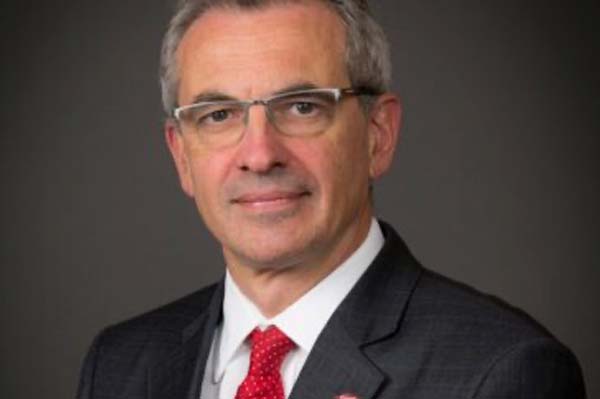
VP of Sustainability, Performance Materials & Coating
Dow
Eric Peeters is the Vice President for Sustainability Performance Materials & Coatings Business Segment, responsible for setting and implementing a holistic sustainability strategy to bring sustainability into the core of the activities and develop an overall growth-oriented approach.
Peeters joined Dow Corning in 1992, a wholly-owned subsidiary of The Dow Chemical Company since June 1st, 2016, in Barry, UK. Over the course of his almost-30-year career, he has served in a number of science and business leadership roles in the U.S. and Europe. He headed the solar business from 2008 to 2012, was named Vice President of Dow Corning’s Electronics Solutions in 2012 and in 2014 became Vice President for Dow Corning’s Emulsions, Blends, Powders and Lubricants Business. In 2017 he was named Global Business Director for Dow’s Home & Personal Care business, holding the P&L and balance sheet responsibility for this business. Peeters is a Board Member and the Treasurer for the American Cleaning Institute. He also serves as the Chairman of the Board for the Energy Materials Industrial Research Initiative. He has a master’s degree in Chemical Engineering from the Catholic University of Leuven, Belgium, and a master’s in technology enterprise degree from the IMD in Lausanne, Switzerland.
The transition towards a low-carbon economy is one of the fundamental challenges society is facing. Dow stands at the center point of this effort, connecting thousands of suppliers with thousands more customers and end-consumers.
In his presentation Eric Peeters, Vice President for Sustainability for Dow’s Performance Materials & Coatings Business Segment will explain Dow’s path towards carbon neutrality. He gives a glance at the steps Dow takes to lower the carbon footprint by decarbonizing its global asset base and also showcases the critical role advanced materials play in enabling a more sustainable society. Eric will cover examples from markets such as construction, home care, personal care or automotive.
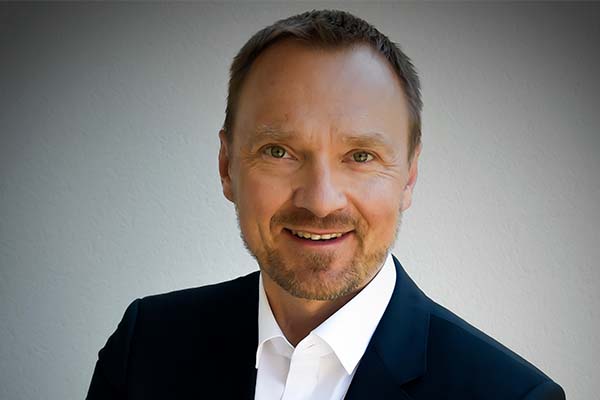
EVP, Head of Group Strategy and Innovation
DRÄXLMAIER Group
Grzegorz (Greg) is passionate about managing technological innovation from an idea to broad market adoption. His combination of technology, leadership and commercial expertise together with a truly global outlook (having worked across Europe, the USA and China) puts him in a strong position to drive international market success for high-tech innovations. Currently, he is responsible for the Battery Systems Business as EVP at Dräxlmaier to deliver cutting edge technology in a premium market for the automotive sector. In this role, he sets the strategy for the business and oversees the entire product commercialisation, from the initial concept to high volume production. Earlier, he has worked at Qualcomm as a Global Vice President and General Manager of a breakthrough technology licensing business. In this role, he was responsible for business, technology and innovation portfolio development in close collaboration with strategic partners and universities. Grzegorz holds a PhD in Electrical Engineering from the Silesian University of Technology, Poland and Certificate in Global Management from INSEAD, The Business School for the World. He has been awarded Guest Professorship at the Zhejiang University in China.
Greg Ombach is the Executive Vice President and Head of Group Strategy and Innovation at Dräxlmaier and in this talk, Greg will share his learnings about:
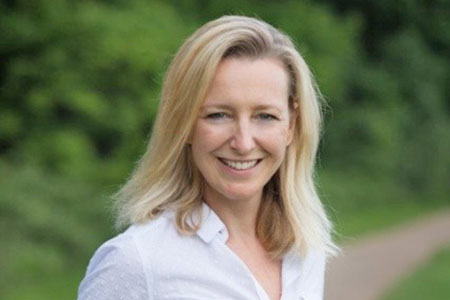
SVP, Head GSK Transformation Office
GlaxoSmithKline
Line is charged with preparing the GSK organisation for successful separation and the creation of two new companies. She has been with the company for over 13 years in HR business partner roles of increasing responsibility in the Vaccines, Consumer, and Pharma business before taking up this role.
For the past 7 years, Line has been based in London with her husband and 3 daughters, she previously lived in Belgium and Spain. She’s passionate about her family, the outdoors and traveling and never refused an opportunity to learn about another culture.
In a discussion with Karolina Lewandowska (Google), Line de Decker (GSK) shares her learnings on the cultural change do’s and don’ts as well as building new organisational and leadership capabilities among others when managing large scale transformations within a large organization.
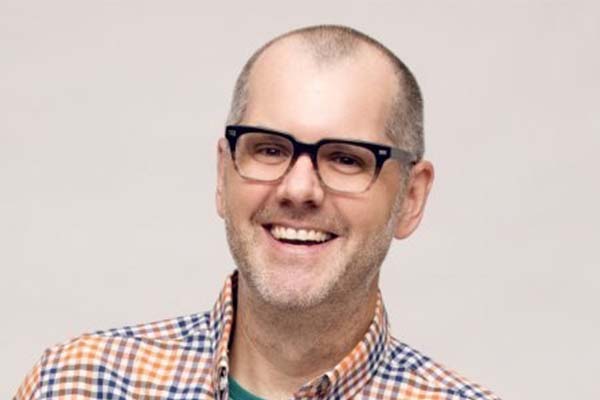
Co-Director, D-Ford Design Thinking
Ford Motor Company
Lawrence Abrahamson is Co-Director, D-Ford Design Thinking at Ford Motor Company. He helps integrate the behaviors and mindsets of Human-Centered Design into the larger organization so ever-better solutions can be delivered to customers as quickly as possible.
Formerly with IDEO, Lawrence co-lead the New York studio, where he focused on talent and creative culture.
A practicing designer with an architectural background, Lawrence approaches design and teaching with a bias towards tangibility and understands his task is to help create fertile conditions for individuals to design-from-day-one and break everyday mindsets.
Lawrence Abrahamson is Co-Director for D-Ford Design Thinking at Ford Motor Company and in this session, he will share his experiences shifting from a being an outside force for innovation change to being inside a large, 118-year-old legacy company — leading the team in charge of championing Human-Centered Design, during one of the most disruptive times in the industry. During this inflection point, Lawrence shares how they spread behaviors and mindsets of Design Thinking throughout the company as well as their team’s approach, challenges, and how they plan to embed practices to help shift the ways of working and compete in the new age of mobility.
In this fireside chat, Ingo Rauth, Adjunct Professor in Professional Development at IE Business School, together with Lawrence Abrahamson, Co-Director, D-Ford Design Thinking at Ford Motor Company, discusses how to enable design thinking in large organizations while drawing upon Lawrence’s vast experiences as an external and internal change agent as well as Ingo’s research experience and interests.
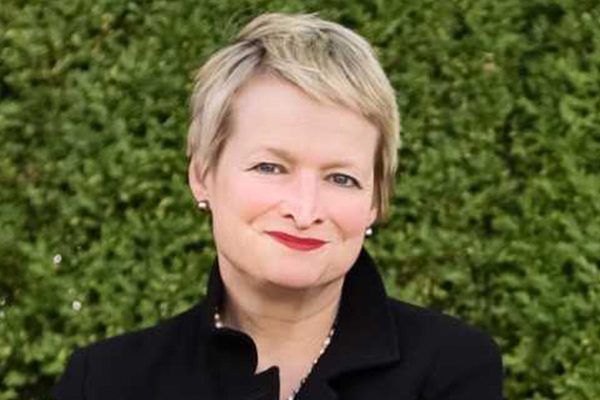
Author and Professor
Awarded #1 in Thinkers50
Columbia Business School
Rita McGrath is a best-selling author, a sought-after advisor and speaker, and a longtime professor at Columbia Business School. Rita is one of the world’s top experts on strategy and innovation and is consistently ranked among the top 10 management thinkers in the world, including the #1 award for strategy by Thinkers50. McGrath’s recent book on strategic inflection points is Seeing Around Corners: How to Spot Inflection Points in Business Before They Happen (Houghton Mifflin Harcourt, 2019). Rita is the author of four other books, including the best-selling The End of Competitive Advantage (Harvard Business Review Press, 2013). .
Coping with high levels of uncertainty has become reality. How can leaders move forward strategically when every day seems to throw up new and unexpected challenges? This talk describes five approaches that leaders can take to drive their strategies, even when they can’t plan for business as usual. It draws from Rita McGrath’s groundbreaking work on strategy in uncertain times.
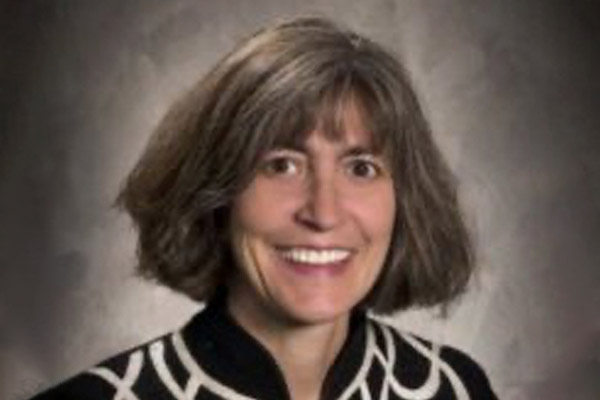
Vice President, Sustainability & Packaging Innovation
3M
Ann Meitz is Vice President, Sustainability & Packaging Innovation for 3M’s Consumer Business Group. As part of her role, Ann champions initiatives to improve sustainability in 3M consumer products, packaging, and manufacturing operations. She is also the Circular Economy champion for 3M.
Ann’s 30+ year career with 3M spans a broad range of businesses from electronics to consumer products to health care industries, and she has led both R&D and business teams. Ann’s previous roles include Sustainability Director for 3M’s Health Care Business; Technical Director for Infection Prevention Division, where she directed the development of medical device and drug products used in hospitals to prevent infections; Business Director for Drug Delivery Systems where she was responsible for the Transdermal Drug Delivery business, including the novel microneedle platform; and Technical Director for Optical Systems Division.
Ann has a B.S. in Chemical Engineering from Iowa State University as well as an MBA in Marketing from University of St. Thomas.
Prof. Jonatan Pinkse moderates a panel with Ann Meitz from 3M, and Erin Groot Hermsen from Unilever and Barry Waddilove from Electrolux. The discussion will touch upon the implications for the public and private sector, as well as opportunities and challenges for innovation and collaboration within the ecosystem.
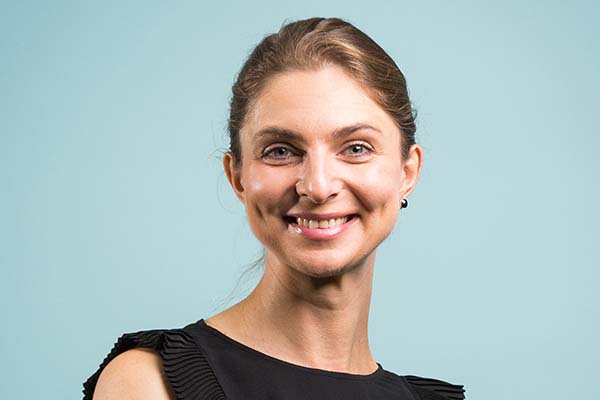
Global Change and Transformation Lead, Google Cloud
Karolina Lewandowska is an expert in communications, organisational change and business transformation. For over 10 years, she has worked with large and small organisations across Europe in a variety of industries, helping them to achieve business and cultural transformation through the use of Google technology. Karolina is now part of the Business Transformation Office at the Google Cloud team and is based in London. She has a postgraduate certificate in Business International Relations and Sinology.
Abstract tba
In a discussion with Karolina Lewandowska (Google), Line de Decker (GSK) shares her learnings on the cultural change do’s and don’ts as well as building new organisational and leadership capabilities among others when managing large scale transformations within a large organization.
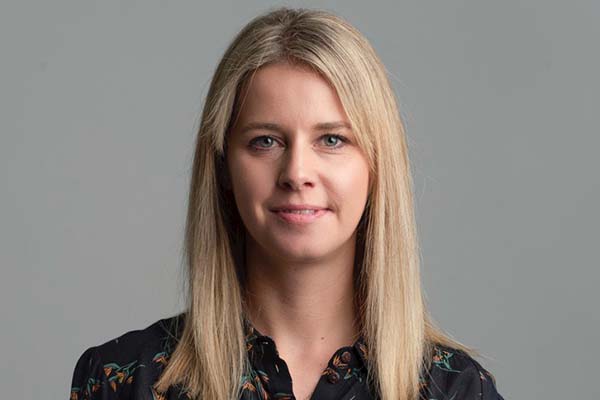
Director IT People & Products
Mercedes-Benz
Sophie is heading the Mercedes-Benz captive Software Engineering Units (‘Home of Tech’) worldwide and the digital transformation of the internal HR & Legal units of Mercedes-Benz. Before that she has been the CEO for Mercedes-Benz Marketing & Sales Digital Flagship unit (‘Mercedes-Benz.io’), focusing on building the entire customer online journey. She has held various roles within Mercedes in Germany, China & Singapore. Sophie is 38 years old and born and raised in Austria. She currently lives in Stuttgart.
In this session, Sophie Seiwald, Director IT People & Products at Mercedes-Benz AG, talks about the importance of psychological safety to promote and embody a culture of speaking up – regardless of one’s role or status – to make truly effective teams. In doing so, Sophie will also touch upon their ongoing initiatives as well as their successes and challenges for going against the status quo and making these changes happen.
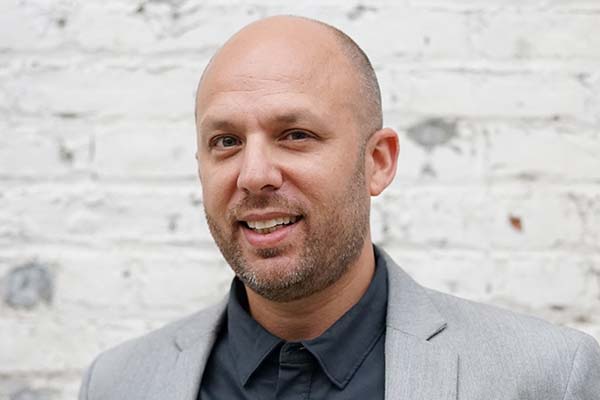
Managing Director
URBAN-X, BMW
Micah Kotch serves as the Managing Director of URBAN-X (backed by BMW and MINI) which accelerated the growth of startups reimagining city life. Before joining URBAN-X, Micah served as the Director of NY Prize and Strategic Advisor for Innovation at NYSERDA. At the NYU Tandon School of Engineering Micah served as Director of Innovation and Entrepreneurship, where he launched NYC’s first sponsored tech incubator and the Urban Future Lab - helping emerging companies address climate, energy and resiliency opportunities. Micah is a core national faculty member for the National Science Foundation’s i-CORPS program which focuses on commercializing federally-funded research. A Brooklyn native (where he lives with his family) Micah is a proud board member for Green City Force, a Next City Vanguard Fellow and a member of the BMW Foundation Responsible Leaders Network.
With the growing popularity of ridesharing apps, and autonomous vehicles just around the corner, traditional car manufacturers are increasingly repositioning themselves as mobility companies. MINI launched URBAN-X two years ago to reimagine city life, and now has more than 30 companies in their portfolio. Micah Kotch will present his experiences in:
Micah Kotch, Managing Director at Urban-X (BMW), Gaetana Sapienza, VP Global Startup Operations at ABB SynerLeap, and Phil Taylor, Global Open Innovation Lead at Bayer, discuss their experiences and takeaways from how they navigated each step of scaling successful partnerships: from identifying the right partners to funding to launching commercially viable products/services.
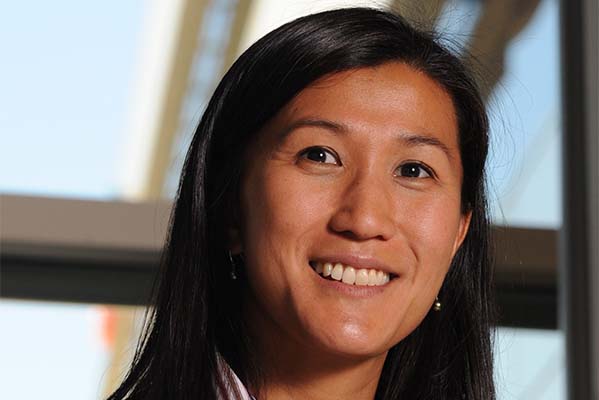
Director, Corporate Venture Building
Bosch
Estella leads Bosch’s North American hub for grow©, the global internal incubator of Robert Bosch. Her charter through grow© drives new business ideas outside the existing core business of Bosch through radical innovation.
Estella bridges the gap between operational excellence and business innovation. She successfully operationalized a new product business from the ground up with successful customer delivery within 12 months, growing this to a multi-million-dollar business within 4 years. During her career, she has built and managed multi-disciplinary teams throughout her broad range of experiences within the product lifecycle, from product R&D and development, through to manufacturing and fulfillment. She has coached and advised 500+ intrapreneurs around the globe and sees the speed in transformation in organizations that foster some entrepreneurial risk.
Estella believes that the key to successful ""intrapreneurship"" lies in creating and sustaining an innovation culture and mindset. Focusing on people before process to drive successful business outcomes.
Estella Woo will talk about grow – Bosch’s internal incubator and platform for global start-ups and intrapreneurs. She will discuss how the platform grows new businesses on a global scale at high speed. Estella Woo will share insights on:
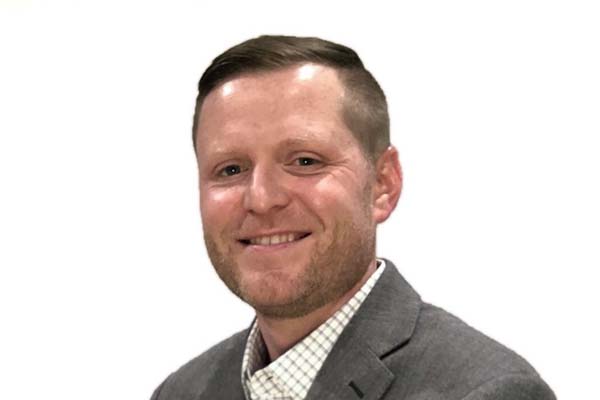
Director, R&D External Innovation
PepsiCo
Chemical Engineer with extensive CPG Foods R&D experience managing people & programs spanning early pipeline concept development, scale up, transfer to Supply Chain, & direct business interface launching initiatives focused on Brand Stewardship & Innovation via product design optimization, process refinement, & new technology.
In this discussion, Ina Wanca, VP of Product and Innovation at Mastercard and Adjunct Professor at NYU, Yaad Oren, Head of SAP Innovation Center Network, and Scott Fagan, Director, R&D External Innovation at PepsiCo will touch upon – among other things – the challenges in delivering scaled breakthrough innovation in large companies, and the various organizational tensions that make doing this challenging depending on how a company is set up what its core business is about and it’s priorities.
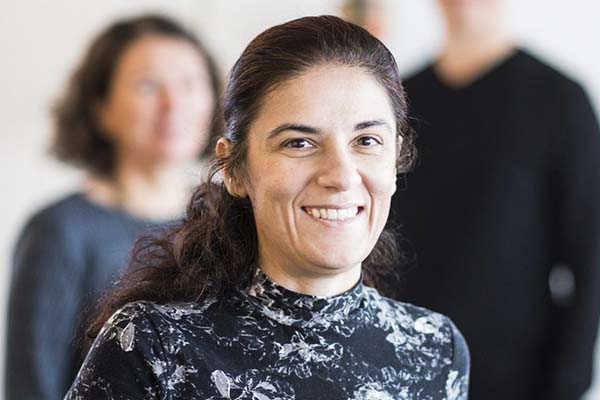
VP Global Startup Operations, SynerLeap
ABB - SynerLeap
Gaetana is the Head of Operations of the Growth Hub SynerLeap powered by ABB, and VP Global Startup Operations, SynerLeap at ABB.
Gaetana has many years of experience in innovation within industry and business from R&D and leading positions within ABB.
She holds a Ph.D. degree in Computer Science Engineering from Mälardalen University, Sweden, and a M.Sc. degree in Computer Science Engineering from the University of Catania, Italy.
Gaetana is currently the Head of Operations (and Co-Founder) of SynerLeap powered by ABB, ABB’s Global Innovation Growth Hub, which objective is accelerating innovation and speeding up value creation together with ABB, partners, customers and startups. More than 160 collaborations across the world have been initiated with startup members from 20+ countries. Additional, ABB has invested in five of these startups and reached long partnerships with seven. Startup members have the possibility to accelerate by accessing a unique industrial innovation ecosystem, mentorship, and ABB’s industry knowledge and infrastructure.
Furthermore, Gaetana holds several publications in international venues and journals, including best paper awards.
Micah Kotch, Managing Director at Urban-X (BMW), Gaetana Sapienza, VP Global Startup Operations at ABB SynerLeap, and Phil Taylor, Global Open Innovation Lead at Bayer, discuss their experiences and takeaways from how they navigated each step of scaling successful partnerships: from identifying the right partners to funding to launching commercially viable products/services.
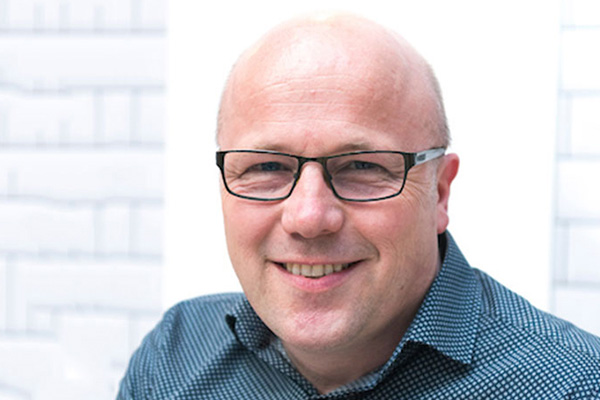
Sustainability Director, Development & Collaborations
Electrolux
Design and innovation leader with broad insight into international product development gained through various design roles across Europe, Hong Kong, Canada and the US. Experience building diverse and cross-functional teams and networking with multiple stakeholders during product and service development. Research experience in the application of sustainable design using system innovation for transition to circular economy business models.
Prof. Jonatan Pinkse moderates a panel with Ann Meitz from 3M, and Erin Groot Hermsen from Unilever and Barry Waddilove from Electrolux. The discussion will touch upon the implications for the public and private sector, as well as opportunities and challenges for innovation and collaboration within the ecosystem.
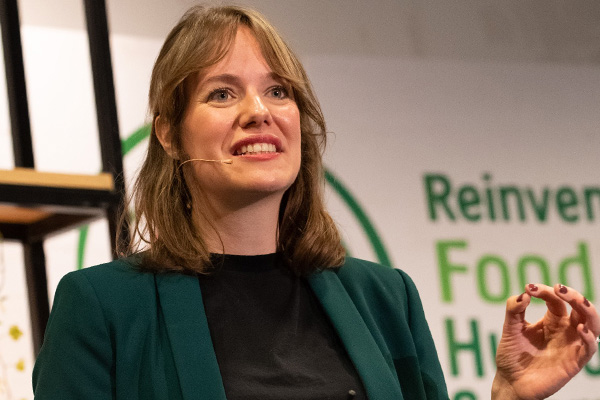
Global Portfolio Transformation Manager
Unilever
Erin is a marketeer and portfolio transformation manager at Unilever, founder of a social enterprise and award-winning author of a cookbook. Via her work in the international foods business, long experience in product innovation and strategy, many travels and volunteer work, she got fascinated by the power of good food for people and planet. Always armed with a smile, she’s continuously searching for new solutions and innovations to bring good food to the many.
In this session, Erin Groot Hermsen, Global Portfolio Transformation Manager at Unilever will discuss how to set up collaborative partnerships between various organizations and and experts in food sustainability, agriculture, and nutrition. In doing so, she will also discuss their key challenges and how to measure successes.
Prof. Jonatan Pinkse moderates a panel with Ann Meitz from 3M, and Erin Groot Hermsen from Unilever and Barry Waddilove from Electrolux. The discussion will touch upon the implications for the public and private sector, as well as opportunities and challenges for innovation and collaboration within the ecosystem.
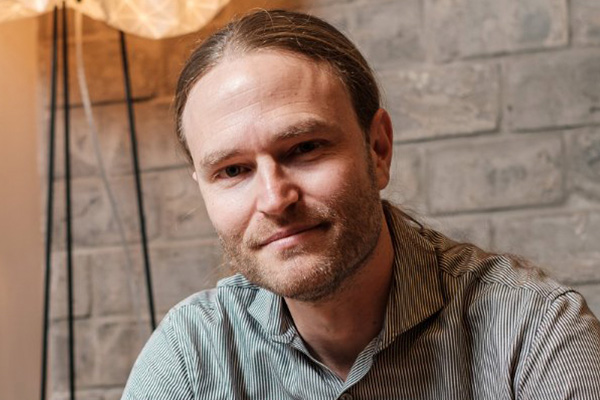
Head of SAP Innovation Center Network
SAP
The past two years have taught us a lot about the importance of innovation and agility. Companies have to adapt to great changes and to re-invent how they work to thrive in a new economic and technological reality. In his keynote, Yaad Oren, Head of SAP’s global Innovation Center Network, shares how his team keeps innovating together with customers, academia and product teams, to help build the next generation of enterprise software and future-proof our customers’ technology investments
In this discussion, Ina Wanca, VP of Product and Innovation at Mastercard and Adjunct Professor at NYU, Yaad Oren, Head of SAP Innovation Center Network, and Scott Fagan, Director, R&D External Innovation at PepsiCo will touch upon – among other things – the challenges in delivering scaled breakthrough innovation in large companies, and the various organizational tensions that make doing this challenging depending on how a company is set up what its core business is about and it’s priorities.
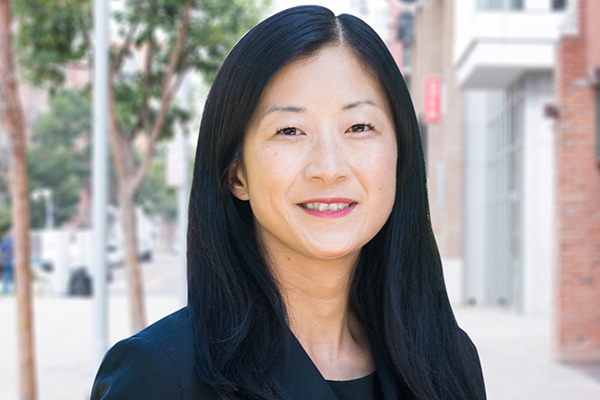
Head JLABS @ Shanghai
Johnson & Johnson
A passionate and respected global health leader in Asia Pacific with strategic planning, scouting and transactional experience. Proven track record in deal making, building partnerships and leading organizational operational activities. Holds various Leadership Team positions in China, Asia Pacific and Global. Entrepreneurial, a team player and brings energy and engagement to accelerate innovation.
In this fireside chat, Sharon Chan from Johnson & Johnson Innovation – JLABS will join Anastasia Georgievskaya from AI-based healthcare start-up and JLABS @ Shanghai resident company, Haut.AI, for a discussion of the opportunities and challenges for collaboration for early-stage start-ups developing new technologies. They will both share insights into their journeys as female leaders in healthcare innovation and delve into the importance of diversity, equity & inclusion in driving healthcare breakthroughs with the aim to improve the lives of people and patients everywhere.
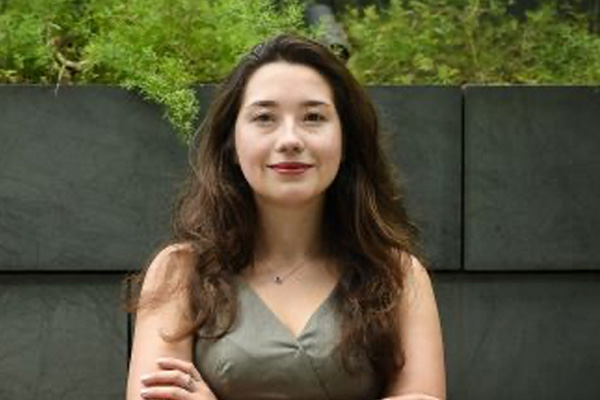
CEO
Haut.AI
Harnessing the power of Artificial Intelligence to slow down or even reverse age-associated changes starting from the first frontier – human skin.
In this fireside chat, Sharon Chan from Johnson & Johnson Innovation – JLABS will join Anastasia Georgievskaya from AI-based healthcare start-up and JLABS @ Shanghai resident company, Haut.AI, for a discussion of the opportunities and challenges for collaboration for early-stage start-ups developing new technologies. They will both share insights into their journeys as female leaders in healthcare innovation and delve into the importance of diversity, equity & inclusion in driving healthcare breakthroughs with the aim to improve the lives of people and patients everywhere.
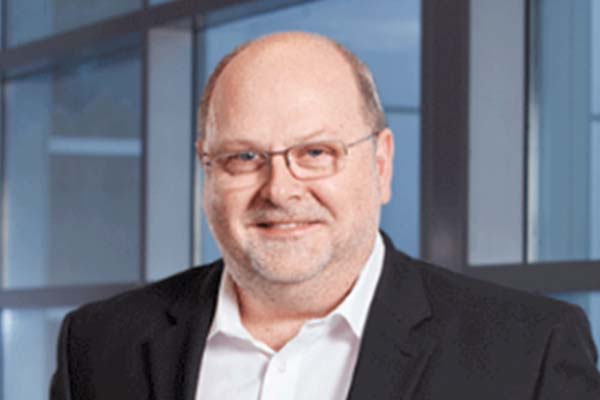
Director of Innovation & Connected Health Research
Novartis
Graham Jones is Director of Innovation and Connected Health Research in the Novartis Global Drug Development group. He was recruited to Novartis in 2018 from Tufts University Medical Center where he was Professor of Medicine and Director of Translational Research. He has authored over 175 publications in the fields of drug development, regulatory science and digital health. He has served as a government and FDA advisor and is a standing member of the NIH grant review committee on emerging technologies for neuroscience. Graham was a founding member of the International network for the science of team science (INSciTS) and has authored studies on the impact of diversity on innovation teams. Graham was educated at Imperial College London and Harvard University, and was awarded the DSc in 2006 for career contributions to medicinal chemistry.
Graham Jones will talk about how diversity and inclusion foster innovation. He will discuss strategies to build inclusive and diverse innovation teams. Graham will share insights on:
Karina R. Jensen, Professor, Global Innovation & Leadership at NEOMA Business School, discusses with Graham Jones, Director of Innovation & Connected Health Research at Novartis about how diversity and inclusion can be transformational for innovation in large companies.
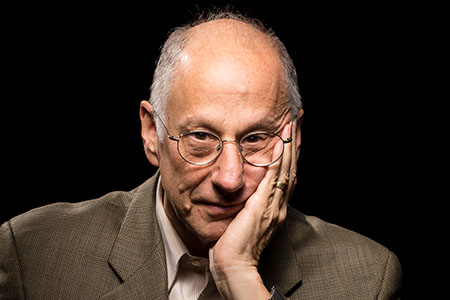
Sr. Fellow (Harvard Berkman Klein Center), Writer in Residence (Google People + AI Research)
Harvard University + Google PAIR
In books, articles, posts, classes, and talks, David Weinberger, Ph.D. explores the effect of the technology on ideas. A long-time affiliate of Harvard’s Berkman Klein Center for Internet & Society, he recently was a writer-in-residence at Google AI, was co-director of the Harvard Library Innovation Lab, and was a journalism fellow at Harvard's Shorenstein Center. Dr. Weinberger has been a marketing VP and adviser to high tech companies, and a Franklin Fellow at the U.S. State Department. He is the author of best-selling and award winning books, including The Cluetrain Manifesto (co-author) and his latest, Everyday Chaos. He has a Ph.D. in philosophy from the University of Toronto.
Conversation with Alexa Dembek, DuPont’s Chief Technology and Sustainability Officer
In this session, David Weinberger, Senior Fellow at Harvard Berkman Klein Center for Internet and Society and Writer in Residence at Google People + AI Research, talks to Alexa Dembek, about how to put put inclusive culture at the heart of digital, sustainability and innovation.
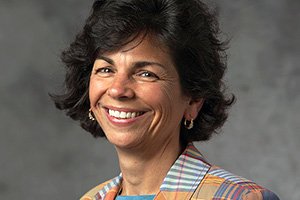
Professor of Innovation Management
Babson College
Professor O’Connor joined Babson in January 2019. She spent 29 years at the Lally School of Management at Rensselaer Polytechnic Institute, where she was Professor of Marketing and Innovation Management and held numerous administrative roles. She earned her PhD in Marketing and Corporate Strategy at NYU, and worked as a contract administrator for McDonnell Douglas Corporation in St. Louis, Missouri.
Gina has published many scholarly papers, five of which have received best paper of the year awards in their respective journals. She has co-authored three books on breakthrough innovation. One of those was named one of the top three business books of the year by Strategy + Business Magazine and the most recent one was named 2nd on the list of recommended books on innovation by InnovationLeader in 2019. In 2018 she was named a Crawford Fellow by the Product Development and Management Association, one of only six recipients of that award.
Gina’s professional objective is to help large established companies learn how to renew themselves through organic growth via breakthrough, strategic innovation. She is an active speaker and consultant for a number of US and European companies, and is passionate about developing the next cadre of innovation leaders.
In this fireside chat, Hari Nair, Vice President for R&D Smart Products Digital Ecosystem at Procter & Gamble, together with Gina O’Connor, Professor of Innovation Management at Babson College, talks about how large mature corporations can organize and manage for breakthrough innovation.
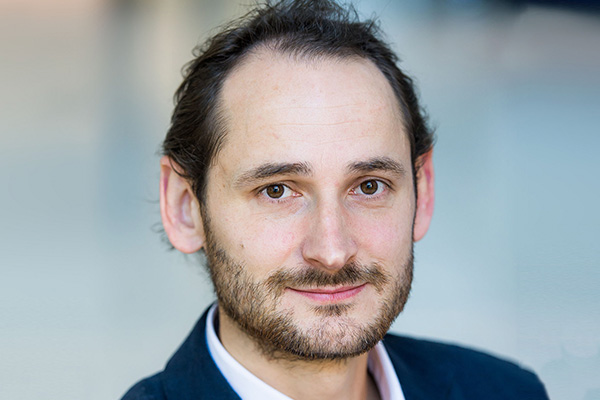
Exec. Dir. Manchester Institute of Innovation Research; Prof. of Strategy, Innovation & Entrepreneurship
University of Manchester
Jonatan Pinkse is a Professor of strategy, innovation, and entrepreneurship at the Alliance Manchester Business School, The University of Manchester. His research covers various different topics including business model innovation, corporate sustainability, social and sustainable entrepreneurship, and innovation in the field of green energy. His teaching is currently focused on high-tech entrepreneurship, business model innovation and creativity. His articles have appeared in various prestigious academic journals such as the Academy of Management Review, Journal of Management Studies, Journal of International Business Studies, Organization Studies, Journal of Business Venturing and Entrepreneurship Theory and Practice. He has also published articles in the practitioner-oriented journal California Management Review, the latest of which deals with value propositions for disruptive technologies. In 2017, he was the program chair of the ONE division at the Academy of Management conference in Atlanta. He is currently associate editor at the peer-reviewed journals Organization & Environment and Business & Society.
Prof. Jonatan Pinkse moderates a panel with Ann Meitz from 3M, and Erin Groot Hermsen from Unilever and Barry Waddilove from Electrolux. The discussion will touch upon the implications for the public and private sector, as well as opportunities and challenges for innovation and collaboration within the ecosystem.
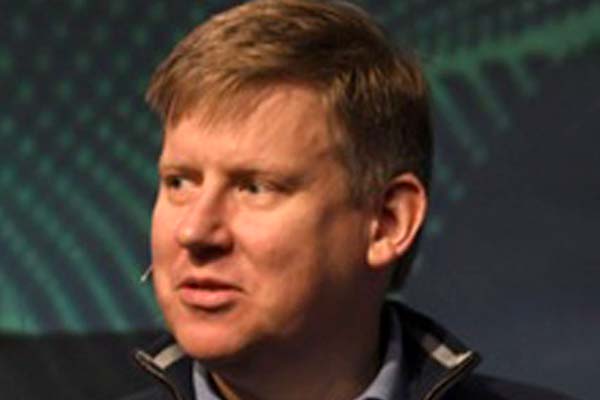
Global Open Innovation Lead
Bayer Crop Science
With over 15 years AgTech industry experience, Phil currently serves as the Open Innovation Lead for Crop Science R&D at Bayer, based in St. Louis, MO. He plays a central role in fostering strategic relationships around the globe and developing programs to enable novel ways of accelerating innovation to support Bayer’s R&D pipeline and drive external innovation ecosystems.
A strong champion for both external and pre-competitive partnering as a driving force for innovation and change, Phil has held multiple leadership roles at Bayer focused on delivering collaborative approaches to enable R&D and enhance the company’s position as an action leader in open innovation and partnering. He was appointed a Bayer Science Fellow in 2020.
Before joining industry, Phil trained as a Plant Cell Biologist, receiving his Ph.D. from the John Innes Centre in Norwich, U.K., and held post-doctoral positions at The University of Leeds and The University of North Carolina – Chapel Hill, as well as a British Council Fellowship at the University of Heidelberg, Germany. Outside of Bayer, Phil is active in the academic and global innovation communities as a member of multiple advisory boards and professional society committees.
Micah Kotch, Managing Director at Urban-X (BMW), Gaetana Sapienza, VP Global Startup Operations at ABB SynerLeap, and Phil Taylor, Global Open Innovation Lead at Bayer, discuss their experiences and takeaways from how they navigated each step of scaling successful partnerships: from identifying the right partners to funding to launching commercially viable products/services.

Professor of Practice in Global Innovation and Leadership
NEOMA Business School
Dr. Karina R. Jensen is an educator and change facilitator who enjoys orchestrating global innovation and multicultural collaboration with international leaders and teams. She is a Professor of Global Innovation and Leadership as well as Practice Director of the Centre for Leadership and Effective Organisations at NEOMA Business School in France. She is also Founder and Executive Director of Global Minds Network, an international advisory firm specializing in innovation readiness solutions. Karina has delivered talks, training, and courses to universities, organizations, and associations around the world. Her research and publications explore the challenges and opportunities of leading in a global, multicultural, and digitally connected world. Through research with 200+ leaders at 45 multinational firms, her book Leading Global Innovation presents a framework for leaders and teams to facilitate strategic planning and execution of global initiatives. Dr. Jensen earned her PhD in International Management at ESCP Business School in France. She is a San Francisco native with Scandinavian roots and currently resides in Paris.
Karina R. Jensen, Professor, Global Innovation & Leadership at NEOMA Business School, discusses with Graham Jones, Director of Innovation & Connected Health Research at Novartis about how diversity and inclusion can be transformational for innovation in large companies.
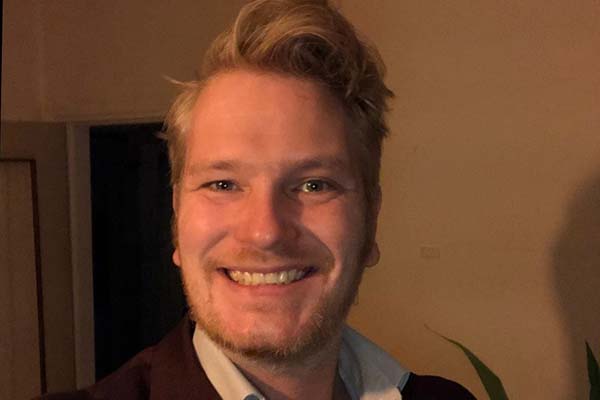
Senior Agile Coach & Hiring Manager at the Lean Agile Practice
Shell
I am a passionate consultant with more than fifteen years of experience working in software development, fulfilling almost every conceivable role. Throughout my career, I've coached and mentored 30+ product teams and their leadership in an international setting. I've had the luxury of assisting and guiding some of the Dutch larger corporate's embarking on their agile transformation as consultant to leadership and provoking a transformation in their subsequent operating model. As the first licensed Scrum.org trainer within Shell staff, I deliver Scrum.org certified training, specifically the Professional Scrum Master course (PSM-I), and the Professional Scrum with Kanban course (PSK-I). I specialize in Scrum Mastery, Advanced Team Dynamics, Product Development and I am a accredited Solution Oriented Coach, aligned with NOBCO (Dutch Order of Professional Coaches).
When I'm not coaching teams during the weekdays, I tend to actually coach teams on the weekend ;-) I'm an accredited ""Youth Soccer Coach"" at the Royal Dutch Soccer Association (JVTC) and act as a coach / trainer with the soccer team of my eldest son, so much fun to do!
In this session, Stephan Vlieland will share about their journey towards data-informed decision making and what steps can be taken to promote this approach within large organizations.
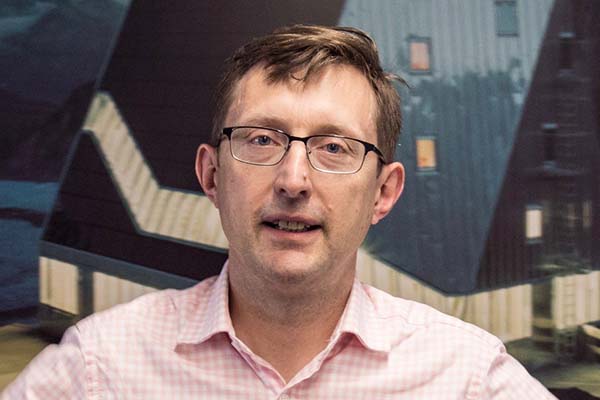
Professor for Product-Service System Innovation
Lucerne University of Applied Sciences and Arts
Shaun West gained a PhD from Imperial College in London, then worked for over 25 years in several businesses related to industrial services. He started his industrial career with AEA Technology before moving to National Power, where he developed and sold services to external businesses. After studying at HEC (Paris) for an MBA, he moved to GE Energy Services, modeling and negotiating long-term service agreements. At Sulzer, he drafted the strategy that led to the service division tripling in size over 10 years and executed part of the strategy by acquiring a 220M CHF service business. Now at the Lucerne University of Applied Sciences and Arts, he is the Professor of Product-Service System Innovation. He focuses his research on supporting industrial firms to develop and deliver new services and service-friendly business models. He is a member of the advisory board for the ASAP Service Management Forum and a member of the Swiss Alliance of Data-Intensive Services. He lives close to Zurich with his wife and two children. He climbs, skis, and runs.
Learning to understand different perspectives within complicated systems allows us to create sustainable innovation; but the problem is it’s really hard to do. We will use these to explain the systems of systems and the people around it, and the decisions that they are trying to make to allow us to become more fluent with innovation.
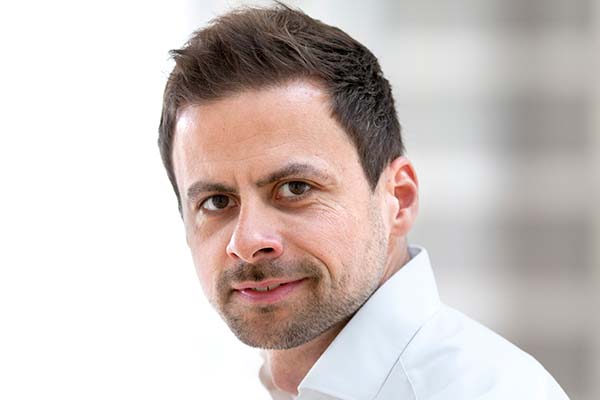
Adjunct Professor in Design and Innovation Management
IE Business School
Ingo Rauth, PhD. is a trusted partner to leaders across sectors who seek to leverage possibility within uncertainty though innovation. In his advisory capacity he has proven to be an enabler of innovation literacy across organizational silos, supporting leaders by way coaching and customized facilitation. An interdisciplinary management scholar with varied experiences, Ingo possesses a compelling combination of subject matter expertise and understanding of the intersection between culture and human behavior. His success lies in his ability to integrate diverse sets of knowledge and practices into the study and practice of innovation. His approach to innovation integrates both analytical and intuitive rigor grounded in flexibility and human-centeredness. Ingo serves as an Adjunct Professor at the IE Business School in Madrid and Post. Doctoral fellow at the Rotman School of Management, University of Toronto. He teaches popular courses on innovation management, design, behavior science and organizational change. His current research focuses on ways large organizations adopt new innovation approaches. Ingo spent a decade working as a professional designer as part of various design teams (Philips, Lunar Design etc.). In this capacity, he supported fortune 500 companies as well as startups to develop corporate identities, interfaces, products and service.
In this fireside chat, Ingo Rauth, Adjunct Professor in Professional Development at IE Business School, together with Lawrence Abrahamson, Co-Director, D-Ford Design Thinking at Ford Motor Company, discusses how to enable design thinking in large organizations while drawing upon Lawrence’s vast experiences as an external and internal change agent as well as Ingo’s research experience and interests.
Volvo Group drives prosperity through transport and infrastructure solutions, offering trucks, buses, construction equipment, power solutions for marine and industrial applications, financing and services that increase our customers’ uptime and productivity. We are committed to shaping the future landscape of sustainable transport and infrastructure solutions. Our headquarter is located in Gothenburg, Sweden.
CampX is our global innovation arena for technology and business transformation. At CampX, we work side by side with partners, including customers, start-ups, suppliers, academia and authorities to develop transport solutions that are safer, cleaner and more efficient.
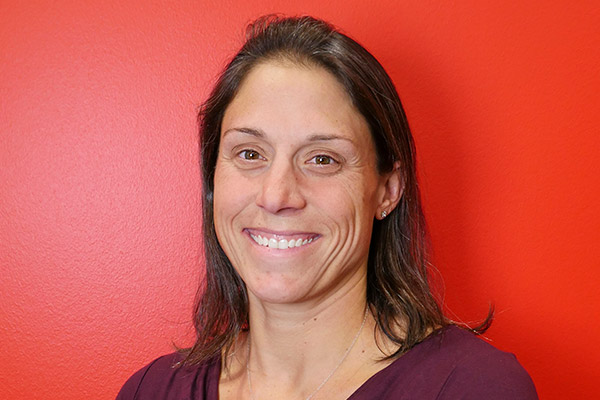
Head of Gore Innovation Center
W.L. Gore & Associates
Linda serves as Head of the Gore Innovation Center in Silicon Valley, exploring how Gore's advanced materials can play a unique role in white space areas for Gore through strategic partnerships and new business development. In addition to her external facing role, Linda has collaboratively led teams to receive additional rounds of internal funding to validate concepts for new product opportunities as an internal startup founder.
Linda led the design and creation of the Gore Innovation Center in Silicon Valley, where she took the facility from its original concept to its execution, completion, and launch. In addition to creating an inspiring physical space to foster innovation, she established the operating model and key performance metrics; while also expanding areas of exploration, establishing partnerships with startups, and advancing relationships and idea generation across the Enterprise.
Prior to her time in innovation, Linda led new product development teams from ideation to commercial launch, drove technical project development and resourcing, and obtained two patents. Linda is currently getting an EMBA at The Wharton School and previously earned Master of Science degrees in both Biomedical and Mechanical Engineering from the University of Michigan and a Bachelor of Science degree in Biomedical Engineering from the University of Notre Dame.
Innovative companies have the hunger, momentum and ideas necessary to disrupt their industries. What they may lack is the materials and material expertise to carry them out. That’s where Gore comes in.
The Gore Innovation Center team works with early to mid-stage startups, innovators, academia, corporations and customers. Our process helps innovators accelerate the discovery of new capabilities and paths to successful commercialization of advanced material technology. While we welcome ideas and engagement across the breadth of Gore’s markets, we have a specific focus in sustainability (e.g. SynBio, CCUS, building materials) and other emerging tech.
In addition to working with collaborators in our prototyping lab, the center also serves as a meeting space that brings together Silicon Valley’s thought leaders, innovators, academics, engineers and more to discuss today’s most pressing industry, product and technical challenges.
From ideation to creation, our Innovation Center provides an environment for meaningful partnerships: a place that not only sparks ideas but can bring them to life.
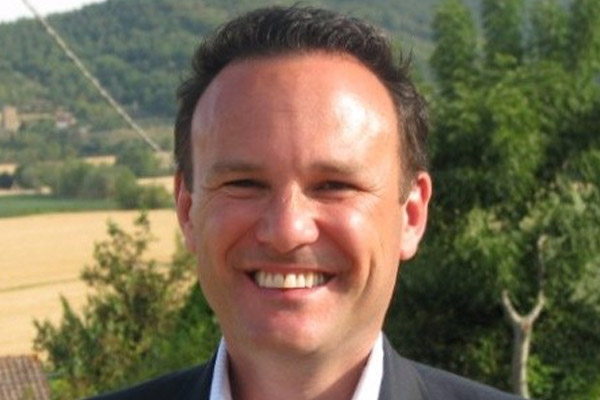
Senior Director Home Care & Open Innovation
P&G
Stuart is currently a Senior Director at Procter & Gamble leading Open Innovation in the Fabric & Home Care business unit. He has more than 26 years experience working and leading R&D and multifunctional teams innovating for the FMCG business. He has worked across brands, product platforms and geographical regions delivering disruptive, transformative and commercial innovation to consumer & professional markets. He has lived and worked in the UK, Belgium, USA and China and is experienced and passionate about front end innovation and using open innovation and lean start up principles to explore new innovation areas with start ups & scale ups in the consumer goods arena. He has a particular focus on Safe and Sustainable, Digital, Hygiene domains & new trends and currently runs an innovation incubator, InQbet Campus, at P&G’s Brussels Campus.
Discover the InQbet Campus, a unique open innovation space created by P&G at its Brussels premises. The campus is designed to connect different players and boost innovation in key areas such as sustainability, digital and industry 4.0. Lean innovation capabilities are at the core of the InQbet Campus, which comprises:
Moreover the campus includes offices and event spaces, created in collaboration with Workhero, to allow P&G and the InQbet partners to work closely together and connect globally online for startup pitches, tech talks and more.
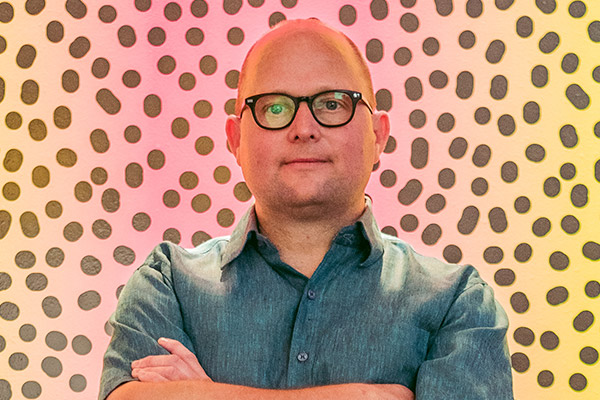
Founder & Curator
Museum of Failure
Dr. Samuel West is a licensed psychologist and has a PhD in Organizational Psychology. His research focuses on creating climates for innovation by encouraging experimentation and exploration. In 2017 he founded the Museum of Failure showcasing over a 100 innovation failures from around the world. The aim of the museum is to stimulate productive discussions about the important role of failure for innovation and to increase organizational acceptance of failure. The touring exhibit has been to Sweden, Los Angeles, Toronto, and Shanghai and a permanent museum will soon open in Spain.
Museum of Failure is a collection of failed products and services from around the world. The majority of all innovation projects fail and the museum showcases these failures to provide visitors a fascinating learning experience. Every item provides unique insight into the risky business of innovation. Innovation and progress require an acceptance of failure. The museum aims to stimulate productive discussion about failure and inspire us to take meaningful risks. The museum is curated by Dr. Samuel West, licensed psychologist, PhD in Organizational Psychology.
The Virtual Tour will feature an introduction about the Museum of Failure’s permanent exhibition in Helnsingborg as well as a first-time presentation of the latest additions to the museum’s collection.